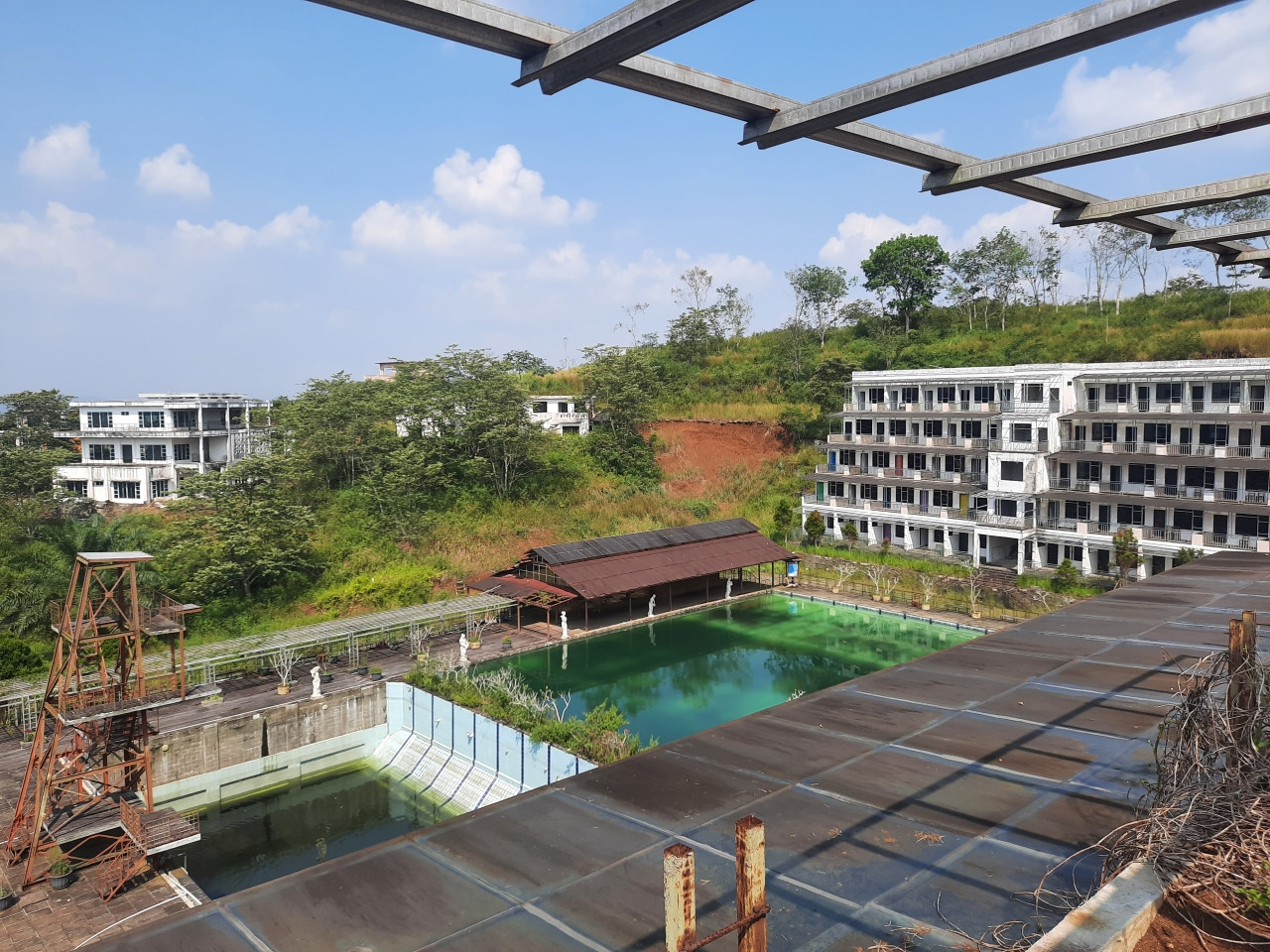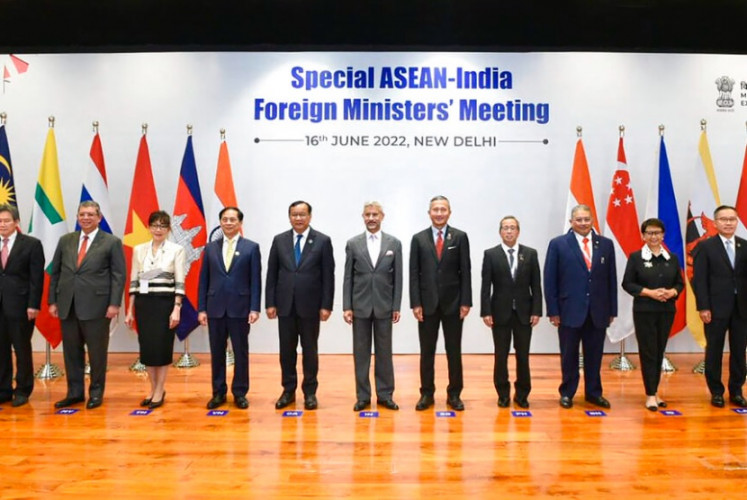Indonesia’s Silicon Valley
The government and the private sector should understand that commitments and ambitions for the development of science and technology in the country are good, but not good enough.
Change Size
 The Cikidang resort in Sukabumi, West Java, is pictured on April 21. Politician Budiman Sudjamitko and businessman Dhanny Handoko are planning to develop the area into Bukit Algoritma (Algorithm Hill), which they hope will be an Indonesian version of Silicon Valley in California, the United States. (JP/Dzulfiqar Fathur Rahman)
The Cikidang resort in Sukabumi, West Java, is pictured on April 21. Politician Budiman Sudjamitko and businessman Dhanny Handoko are planning to develop the area into Bukit Algoritma (Algorithm Hill), which they hope will be an Indonesian version of Silicon Valley in California, the United States. (JP/Dzulfiqar Fathur Rahman)
I
t was the right time for President Joko “Jokowi” Widodo to make the call to reform science and technology policy in the country.
A recent reshuffle that turned the National Research and Innovation Agency (BRIN) into an independent state body and merged the technology ministry into the Education, Culture, Research and Technology Ministry has created a sense of urgency for the development of educational and research solutions to address the pandemic and its attendant recession.
The Bukit Algoritma (Algorithm Hill) megaproject in Sukabumi, West Java, embraces the same spirit.
Spearheaded by Budiman Sudjatmiko, an Indonesian Democratic Party of Struggle (PDI-P) politician, the ambitious project seeks to emulate Silicon Valley in California, the United States, and become a center of research in neuroscience, nanotechnology, quantum technology, solar cell technology and space exploration.
But as it stands, there is little to see at the site of the project. A palm oil plantation covers most of the 800 hectare plot, and it still has poor internet connection and is remote from urban centers.
Sukabumi, which has direct access to Pelabuhan Ratu Port in the south of West Java, has opened itself to industrial zones, but it remains less known than Jakarta’s satellite cities, such as Bekasi and Karawang, for infrastructure.
Going forward, the government and the private sector should understand that commitments and ambitions for the development of science and technology in the country are good, but not good enough.
These commitments should be grounded. Silicon Valley did not start as a mega industrial zone project or a top-down government program. The region, which corresponds to the Santa Clara Valley, consists of several cities, including Palo Alto, home to Stanford University.
From the 1940s to 1980s, the area grew as a technology center through infusions of graduates from the university’s engineering school and other nearby academic institutions, who were encouraged to become entrepreneurs. It was the place where the transistor, a central component of the computer processor, was invented.
In 1956, William Shockley, a coinventor of the technology, founded his own company and became the first to produce transistors out of silicon, not germanium. When journalist Don Hoefler covered the area’s semiconductor industry in 1971, he titled the story “Silicon Valley USA”.
As many of Indonesia’s regions remain underdeveloped, with poor infrastructure and no access to the internet, the government has good reason to promote and invest in industrial zones in many provinces.
But eventually such zones should develop roots, that is, be supported by people in the area and linked to existing industries. In the case of Silicon Valley, Stanford University has been a major driver of tech industry growth, helping make it a multi-trillion dollar community.
If the government and the private sector want to develop Bukit Algoritma into a science and technology industrial zone, they should think of a specific industry to cultivate, perhaps making use of the existing oil palm plantations. This could create a regional vision of producing renewable energy and other derivative products to support zero-waste industry.
A big dream always starts small.








